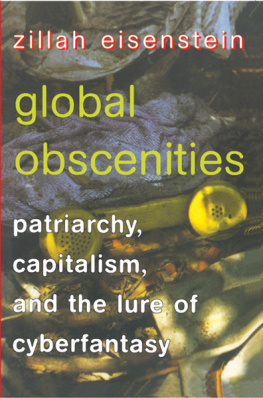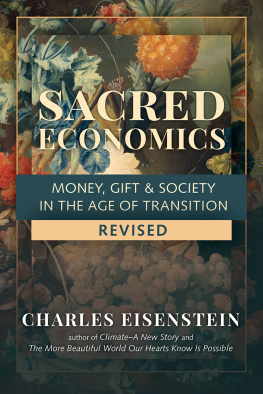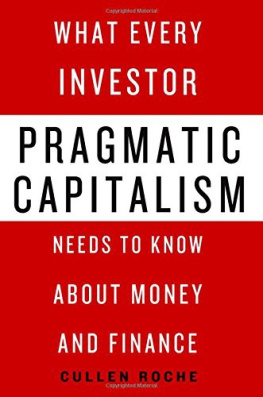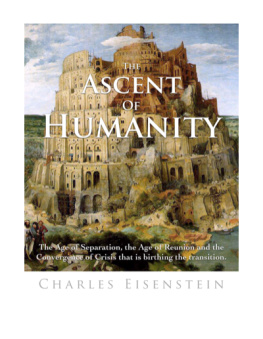Thank you for buying this ebook, published by NYU Press.
Sign up for our e-newsletters to receive information about forthcoming books, special discounts, and more!
Sign Up!
About NYU Press
A publisher of original scholarship since its founding in 1916, New York University Press Produces more than 100 new books each year, with a backlist of 3,000 titles in print. Working across the humanities and social sciences, NYU Press has award-winning lists in sociology, law, cultural and American studies, religion, American history, anthropology, politics, criminology, media and communication, literary studies, and psychology.
global obscenities
global obscenities
patriarchy, capitalism, and the lure of cyberfantasy
zillah eisenstein
new york university press
New York and London
1998 by New York University
All rights reserved
Library of Congress Cataloging-in-Publication Data
Eisenstein, Zillah R.
Global obscenities : patriarchy, capitalism, and the lure of
cyberfantasy / Zillah Eisenstein.
p. cm.
Includes index.
ISBN 0-8147-2205-9 (hardcover : alk. paper). ISBN 0-8147-2206-7
(pbk. : alk. paper)
1. Feminist theory. 2. Marxian economics. 3. Cyberspace.
I. Title.
HQ1190.E38 1998
305.4201dc21 98-25275
CIP
New York University Press books are printed on acid-free paper,
and their binding materials are chosen for strength and durability.
Manufactured in the United States of America
10 9 8 7 6 5 4 3 2 1
For my beloved mother, Fannie Price Eisenstein
contents
acknowledgments
My writing is a process that necessitates the recognition of many others. My faithful readers and critics allow me to rethink and rework ideas in dialogue with them. Without them, I would not be able to write as I do. Miriam Brody, Rosalind Petchesky, and Patricia Zimmermann each read and commented on the full manuscript in its entirety and Miriam actually read it a second time. I have come to depend on their intellectual rigor immensely, and I deeply appreciate their continuous support. My thanks also to Frank Wood, Chandra Mohanty, Susan Buck-Morss, Anna-Marie Smith, Thomas Shevory, and Asma Barlas for reading several chapters in early draft form.
Sylvestre Marlaud, my research assistant, was invaluable in finding obscure materials, both in hard copy and on the net. Jim Meyer greatly assisted me in finding the latest books on cyberspace. Jill Swenson was very helpful in suggesting media-related sources. Frank Wood of the Cornell Theory Center took me on several excursions into virtual reality.
Donna Freedline helped me sort through my enormous correspondence related to this book project. Sarah Dean assisted me with the final copy.
My daughter Sarah insisted that she was better equipped to search and explore cyberspace than I was. I thank her for my early excursions to places unknown.
My students at Ithaca College have played a significant role in this book. In two seminars, Gender in Cyberspace (fall 1996) and Debates in Feminism (fall 1997), students researched the net for its cybersexual, cybergender, and cyberfeminist aspects. Special thanks to Leigh Ann Kuiken, Katy Pennypacker, Eliza Minsch, and Laura Williams.
I must also thank those in my life who sustain me and make it possible for me to work as I do. In this increasingly privatized world I feel lucky to have such a rich network of people to depend on. Deep thanks to Fannie Price Eisenstein, Ellen Wade, Rebecca Riley, Carla Golden, Mary Katzenstein, Mary Ryan, Julia Price Eisenstein, Sarah Eisenstein Stumbar, bell hooks, Richard Stumbar, Patty Zimmermann, Chandra Mohanty, Toni House, Isaac Kramnick, Rosalind Petchesky, Linda Zerilli, Susan Buck-Morss, Bernie Wohl, and Miriam Brody.
Lastly, I wish to thank Cecelia Cancellaro for suggesting that I consider working with Niko Pfund at New York University Press. And I wish to thank Niko for being such a supportive and spectacular editor. Thanks also to the incredible staff at NYU Press for their expeditious work and varied talents used in the last stages of producing the book: Despina Papazoglou Gimbel, Andrew Katz, Nicole Sanfilippo, David Updike, and Stewart Cauley. Of course, I alone am responsible for any shortcomings of this book.
I cannot conclude my acknowledgments without mentioning my younger sister, Giah Eisenstein. I started writing this book shortly before she was diagnosed with ovarian cancer. As she bravely and desperately fought for her lifeover and over againI was painfully reminded of the limits of REAL bodies. I am sure that her death provoked some of the despair written into this book. But I am also as sure that her incredible tenacity against enormous odds is also written into my sense of possibility.
introduction
Some 800 million people are starving across the globe. Women and girls represent approximately 60 percent of the billion or so people earning one dollar a day or less. However, in countries labeled democratic, a new kind of excessive wealth exists in which billionaires are allowed to amass as much as they can with few limits. New levels of arrogance emerge just as the nation-state is being overshadowed by transnational corporations.
Meanwhile, corporations displace countries. Of the worlds largest one hundred economies, fifty-one are corporations, not countries. The two hundred largest corporations hire less than three-fourths of one percent of the worlds work force but account for 28 percent of the global market. The five hundred biggest corporations account for 70 percent of world trade. No surprise that Amnesty International now reports on corporations as well as nation-states.
Class exploitation seems to be back with a vengeance, and women and girlsespecially those in third-world-south countriesappear to take the brunt of it. But this racializing of gender also applies in first-world-north countries. The new geographies of power are located and layered across the first/third-world divide. In order to understand this POWER we must theorize its patriarchal and racialized moorings.
This book sets out to theorize the web of globalized consumer capital and its racialized/sexualized underbelly. It explores the tensions between really real, fantasy real, and virtually real in our highly media-ted world. I pluralize the realunmediated reality that is never quite knowable as such, media-ted viewings that are always in play, and cyberconstructions of knowingwhile also demanding a reading of the power relations defining these relations.
These layerings of power, which are constructed, articulated, and distributed by the cyber-media complex of transnational capital, form a complicated web. I seek to delineate the webbed and layered relations of global power. Each chapter prioritizes one layering within the web while also articulating the intricate local and transnational marbled whole. The transnational systems of power I interrogate are clearly defined, but also interlinked. Therefore the chapters are also webbed, multilayered, and overlapping.
The web of transnational capital is not seamless and open, with no center. Rather, the power of capitals cyber-media complex is hierarchical, grossly unequal, AND dispersed. I show how cybertechnologies rearticulate systems of power AND undo them. The centers of power are always shifting, which is different from saying that power has no specific location.











